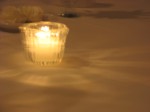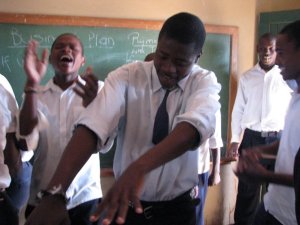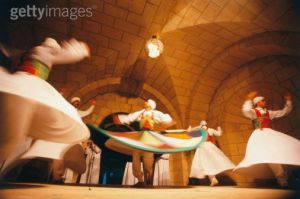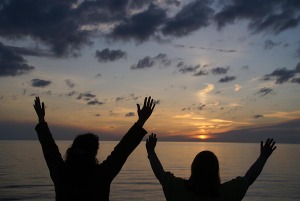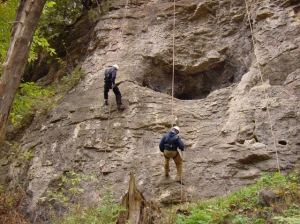CONSOLATION PRIZES THAT DON’T COLLECT DUST
For those that enter beauty pagaents, writing contests, or sports competitions, receiving the consolation prize is a sign that you are some kind of a runner up. There was a winner and they won the grand prize. All the others prizes may represent a good effort or recognize the great performance, but are really an attempt to ease the blow of well, losing.
 How different the prizes of consolation are for us when they present themselves amid and after the inevitable losses in life. To be awarded consolation in its many guises after grief, rejection, emotional exhaustion is to know the sweetest balm. While these salves can be as simple as a stranger’s smile, they are often times a reawakening of our senses to the world around us. In The Sinner’s Almanac, Taufiq Khalil writes these verses in “Audacity No. 127”: “The dew on the grass in early morning makes me happy. The puddle of water left by the evening rain makes me merry. The Sun glimering behind a green canopy keeps me cheery. And God is most pleased with those who smile Whatever the hour Who have the audacity to be happy When all life seems sour”.
How different the prizes of consolation are for us when they present themselves amid and after the inevitable losses in life. To be awarded consolation in its many guises after grief, rejection, emotional exhaustion is to know the sweetest balm. While these salves can be as simple as a stranger’s smile, they are often times a reawakening of our senses to the world around us. In The Sinner’s Almanac, Taufiq Khalil writes these verses in “Audacity No. 127”: “The dew on the grass in early morning makes me happy. The puddle of water left by the evening rain makes me merry. The Sun glimering behind a green canopy keeps me cheery. And God is most pleased with those who smile Whatever the hour Who have the audacity to be happy When all life seems sour”.
 There is the gift of a morning when the heavy hurt you carried like lead for a time too long gives way to the sunshine in a way that no longer mocks your inner atmosphere. The warmth on your face and the sound of the chickadee whose great great great grandparents once sung outside your nursery window is calling you to attention, to be attentive, to attend.
There is the gift of a morning when the heavy hurt you carried like lead for a time too long gives way to the sunshine in a way that no longer mocks your inner atmosphere. The warmth on your face and the sound of the chickadee whose great great great grandparents once sung outside your nursery window is calling you to attention, to be attentive, to attend.
The prolific Pultizer Prize winning poet (yes, she did win a grand prize) Mary Oliver understood well how the Sacred and Holy are embued in Nature, that the possibility of a Kairos moment (meaning the right or opportune moment) is ever beckoning. She asks that we lay our burdens at the altar of heartbeating Life in her poem Wild Geese:
You do not have to walk on your knees for a hundred miles through the desert, repenting.
You only have to let the soft animal of your body love what it loves.
Tell me about despair, yours, and I will tell you mine.
Meanwhile the world goes on.
Meanwhile the sun and the clear pebbles of the rain are moving across the landscapes, over the prairies and the deep trees, over the mountains and the rivers.
Meanwhile the wild geese, high in the clean blue air, are flying home again.
Whoever you are, no matter how lonely, the world offers itself to your imagination, calls to you like the wild geese, harsh and exciting—over and over announcing your place in the family of things.





